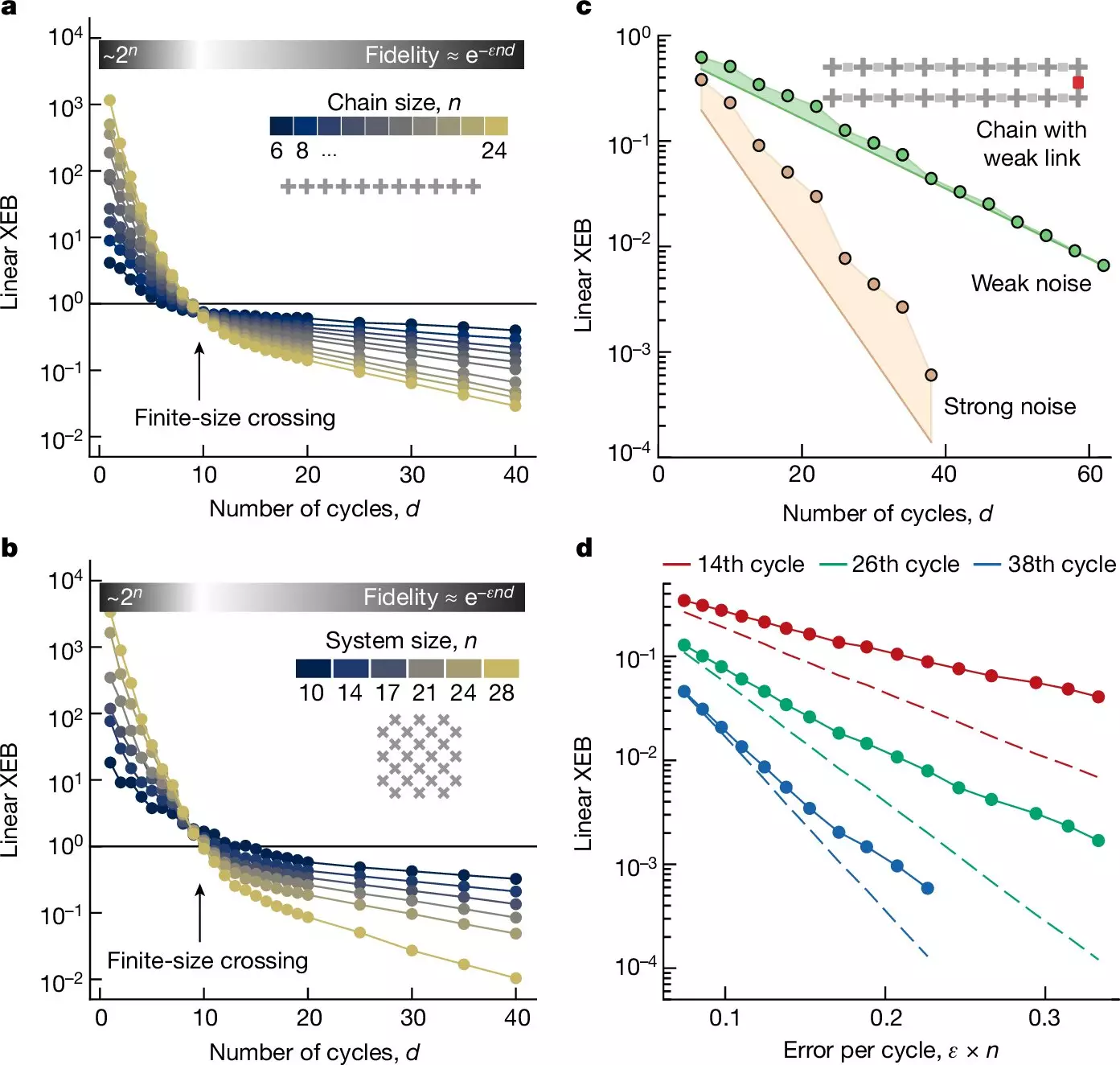In the ever-evolving landscape of computational technology, the pursuit of quantum supremacy has become a focal point for researchers and industry leaders alike. Google’s team of engineers and quantum specialists has recently made significant strides toward this elusive goal with their innovative approach focused on noise reduction. Published in the esteemed journal *Nature*, this research highlights the transformative effects of minimizing interference, enabling their Sycamore quantum chip to outperform classical computers in random circuit sampling (RCS) tasks. This achievement underscores a pivotal moment in the effort to forge a practical quantum computer, capable of solving complex algorithms exponentially faster than today’s classical supercomputers.
One of the major obstacles in realizing viable quantum computing is environmental noise, which hampers the stability and accuracy of quantum systems. Researchers have long grappled with the effects of this noise, stemming from factors like temperature fluctuations, magnetic interference, and even cosmic radiation. The persistent challenge was to not only identify these disruptive forces but also to devise effective methods for mitigating their impact. Google’s team has responded to this dilemma by advancing techniques aimed at curtailing noise, thereby enhancing the operational fidelity of their quantum processor. Their findings reveal that a seemingly minor improvement in error rates could yield substantial performance gains, fundamentally transforming the quantum computational landscape.
Innovative Solutions in Action
The researchers implemented cutting-edge strategies that pushed the Sycamore chip into a state analogous to near absolute zero—an environment specifically designed to minimize noise interference during processing. During testing, they demonstrated that even slight reductions in error rates could usher in remarkable enhancements in computational capabilities. For instance, elevating the error-free performance from 99.4% to an impressive 99.7% opened the doors to the coveted “quantum advantage,” a benchmark where quantum systems perform tasks beyond the reach of their classical counterparts. This breakthrough not only reinforces the practical feasibility of quantum computing but also serves as a beacon of hope for ongoing research.
As the research community continues to grapple with the intricacies of quantum mechanics, Google’s findings reinforce the momentum toward creating useful quantum devices. The evolution of algorithms suited for both quantum and classical platforms will allow for comparative testing, accelerating the development of quantum technologies. The ability to harness quantum systems to perform tasks with unforeseen efficiency points toward a future where quantum computers play a crucial role in solving some of society’s most complex problems, from drug discovery to cryptography.
Google’s advancements in noise reduction for quantum computing signify not just a technical achievement, but a crucial step toward realizing the promise of quantum technology. As the fabric of computational theory evolves, the implications of this research may soon lead us to a realm where quantum computers fundamentally reshape our understanding and approach to problem-solving. The journey is ongoing, but with each breakthrough, the horizon of classical and quantum computing draws closer together, hinting at a revolution that could change the technological landscape forever.


Leave a Reply